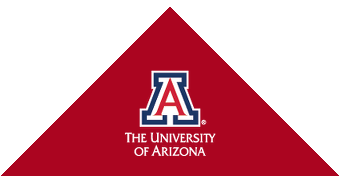Building Healthy Communities: Community Engaged Approaches to Disability and Health
Nogales, Arizona – Nogales, Sonora
This three-day binational, interprofessional activity, known by all involved as BISLE 2016, will bring together 14 UA Arizona Health Sciences Center students (public health, medicine, pharmacy, nursing) and 16 students from Sonora, Mexico representing la Universidad del Valle de Mexico (UVM) Hermosillo and Nogales campuses, and la Universidad Kino (UniKino), in the disciplines of medicine, nursing, physical therapy, dentistry, veterinary medicine, nutrition and psychology. The students will form interprofessional and binational teams (6 teams altogether) and engage in service learning activities with community-based programs that will expose them to the values, ethics, roles and responsibilities, and teamwork necessary for collaborative practice in addressing community health and disabilities.
By the end of the weekend, we expect that students participating in the experience understand and gain skills, within the context of the border region, in:
a. Interprofessional teamwork and communication;
b. Binational collaboration;
c. Collaborating within a framework of community engagement and
d. Increase their awareness of border communities’ unique strengths and challenges in addressing health and wellness.
Faculty and students involved in the weekend experience can ask to join the FaceBook group to share photos, impressions, and stay in touch, and explore the 2015 group's postings. The group is called Interprofessional Border Group.
We also ask that our BISLE 2016 students complete pre and post surveys, located at the following link:
https://uarizona.co1.qualtrics.com/SE/?SID=SV_3qsapGbKE4n8Lch
Readings (Lectura)
In preparation for the trip, students were asked to read the following items (websites or PDFs of the articles can be accessed at the links below):
- Disability and Health
-
Health care system - Mexico
- Bonilla-Chacin, M.E. & Aguilera, N.. (January 2013). The Mexican Social Protection System in Health. Washington, DC: The World Bank. Unico Study Series 1
- Health care system - USA
- Healthy Border 2020
Optional/Supplemental Reading:
- Interprofessionalism
- US-Mexico Border epidemiological profiles (border-wide) Lara-Valencia, F. (May 2013). Quality of Life in the United States-Mexico Border Region: Current Status and Emerging Trends. In: C.E. Wilson & E. Lee, (Eds.), The State of the Border Report. A Comprehensive Analysis of the U.S.-Mexico Border (pp. 20-58). Washington, DC: Wilson Center – El Colegio de la Frontera Norte – Arizona State University North American Center for Transborder Studies.
Service Learning Partners in Ambos Nogales
ARIZONA
Southeast Arizona Area Health Education Center (SEAHEC) - SEAHEC's mission is to improve the recruitment, placement and retention of culturally competent health professionals in rural and under-served communities of Southeast Arizona.
Santa Cruz Training Programs, Inc. - The mission of Santa Cruz County and its affiliate, Santa Cruz Training Programs, has always been to serve the local community by striving to provide a better life for all of its citizens with developmental disabilities.
The Santa Fe Ranch Foundation - This organization works to inspire people and create opportunity in our community by providing hands-on experiences in nature via high quality outdoor education and agriculture programs.
Mariposa Community Health Center - Mariposa is a patient-centered health care home that ensures access to culturally appropriate, primary care and community-based education regardless of an individual’s ability to pay. We facilitate access to specialty care and provide services and programs that respond to community/patient needs and encourage individual responsibility for one’s health.
Southern Arizona Autism Association. The Southern Arizona Autism Association was created by parents for parents as a resource for family members , medical providers, social service providers and educators who love and/or work with someone on the Autism Spectrum. It was developed as a venue for all involved to come together to understand those on the Spectrum and how to improve their quality of life. We provide education, information on local and state resources, and strategies.
SONORA
Asociacion Down Nogales (Down Association of Nogales) - This group was founded in 2008 by parents who have children with Down syndrome with the purpose of giving them opportunities for a better future. The organization is located in Colinas del Yaqui in the city of Nogales, Sonora. In addition to providing informational resources and a support network to families that have children with Down syndrome, the association offers physical therapy, language therapy, early childhood stimulation, and receives help from a pediatrician and a psychologist. The ultimate goal is to bring independence and happiness to children with Down syndrome.
Grupos de Ayuda Mutua para Diabeticos en Nogales, Sonora (Support Groups for Diabetics of Nogales, Sonora) -These groups were formed as part of an integrated, multidisciplinary strategy by the institutions of public health to control, offer attention and prevent diabetes. The support groups can be directed by public institutions or civil associations. Each group has about 20 members that live with diabetes. Patient empowerment, the promotion of healthy lifestyles, weight control, physical activity, and nutrition plans are among the tools that these groups utilize. Additionally, patients are taught to accept their illness and learn how to monitor it so that they can recognize warning signs of complications. In Nogales, Sonora around 70 patients are active in this groups.
ITAMA - Instituto Tratamiento Y Aplicación De Medidas Para Adolescentes - ITAMA is part of the “Integrated Justice System for Adolescents” and its Notable Functions are:
- Cement in adolescents a sense of responsibility and participation in society. They should learn to respect the value of law, public order and be constructive citizens.
- Provide bio-psychological treatment so that adolescents can safely reintegrate into society. Attention should be paid to the family, school, work and overarching community environments.
- Influence youth so they avoid committing crimes in the future.
ARSOBO - Arizona Sonora Border Projects for Inclusion - ARSOBO trains and employs individuals with disabilities to construct medical equipment they need and use.








